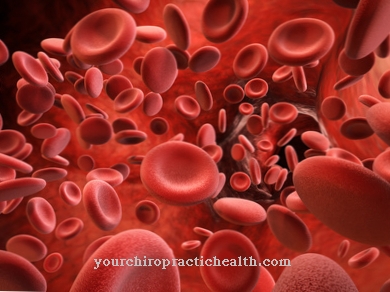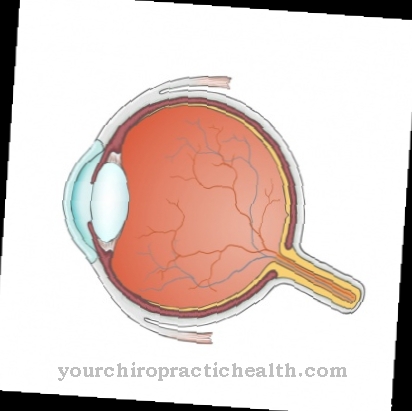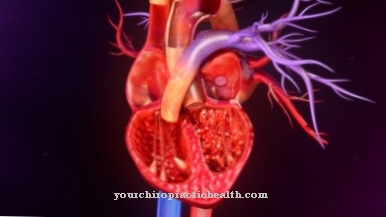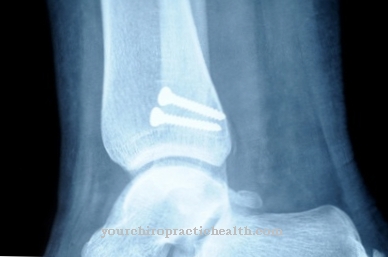Falling into different states of mind is part of everyday life for people. Sometimes they feel exhausted and sad, sometimes they are powerful and joyful and feel a great deal euphoria. Often there is no obvious explanation for one feeling or the other. However, sometimes the ability to be euphoric can be prevented.
What is euphoria?

The word "Euphoria" has its origin in the Greek language and means something like "to be able to take something lightly or to be able to bear it well". If you get into an exuberant state of mind, this feeling of elation is also known as euphoria. This is a strong surge of emotions that usually only lasts for a short time, but conveys great wellbeing and increased zest for life.
Usually this condition affects an individual, but there is also a kind of "community euphoria", such as at major sporting events, in which an entire country falls into high spirits.
In psychology, this term is also used for a condition that can be caused by the consumption of intoxicants. In this case the cause lies in the use of sometimes very dangerous substances.
Function & task
In contrast to the consumption of intoxicants, you can often not explain a natural euphoric state. A suddenly unexpected moment of happiness or exaggerated joy, the causes can be of very different nature. But no matter what the trigger is and, if often only for a short time, this feeling of elation makes you strong and reduces inhibitions and insecurity. In general, feelings of happiness have a positive effect on our body. We develop joy in our own achievements or find out what is good for us and what drives us.
A hormone that plays a special and important role in euphoria is dopamine. It makes you happy, satisfied and increases our motivation. The more surprising and unexpected the feeling of happiness, the greater the effect.
A kind of euphoria is often felt with professional or sporting success. Once you have experienced this state of affairs, people who are willing to work hard to achieve it again and again. Competitive athletes, for example, do everything they can to savor the elation of victory again and again, and they almost get into a frenzy that drives them forward.
The happiness hormone dopamine, which serves as a neurotransmitter here, increases the desire for one's own performance and also inhibits fatigue and the feeling of hunger.
Most euphoric states are short-lived and the associated effects on our body are temporary. People don't always need absolute ecstasy in order to feel comfortable in their body and environment. Just knowing that they are capable of these strong feelings drives them forward.
Too often fall into a certain euphoria or to try to want to bring about this state of affairs, however, also harbors a certain danger. The intoxication that people get into is not always positive and, as with the consumption of prohibited substances, the pursuit of the intoxication can become a problem.
You can find your medication here
➔ Medicines against depressive moods & to lighten the moodIllnesses & ailments
A certain addiction to these brief "ecstatic" moments of happiness can develop, which can have an effect similar to a "real" addiction. In contrast to the happiness hormone serotonin, the dopamine released during euphoria harbors certain dangers. It increases the willingness to take risks and reduces the inherent inhibitions and warning signals. It arouses desire for greater achievements and recognition. The happiness hormone serotonin, on the other hand, does not work as intensely for a long time, but is more permanent. Although it also conveys a relaxed attitude towards life, the effects on the body are less extreme.
Getting into a euphoric state from time to time is completely harmless and, on the contrary, even beneficial. But if a person becomes "addicted" to it, a disease can develop from it. Hyperactivity and restlessness are some of the effects it has on our bodies.
The abuse of harmful substances and drugs can also trigger euphoria, as can people who are dependent on certain drugs. Even with herbal ingredients, such as ginseng, overdorsation can trigger ecstasy.
The subject of "euphoria" also plays a major role in medicine for certain diseases. Manically depressed people, for example, fluctuate between great euphoria and deep depression. In their high phases they feel strong and productive, but then fall into a deep hole. With all bipolar disorders the emotional and psychological balance is lost. The greater the euphoria, the worse the crash and the depression afterwards. In the case of addictions, these symptoms are also part of the patient's everyday life.
In medicine there is the term "unproductive euphoria", which, in contrast, is characterized by lack of drive and motivation. If the otherwise healthy person becomes a dopamine junkie, from this point on he lives quite dangerously. The kick required to trigger the euphoria is becoming more and more daring. As the inhibition threshold drops and dangers are underestimated, injuries or overdosing can occur more easily. The relation to reality disappears and the compulsion to succeed or to feel elated can develop into a severe addiction.











.jpg)



.jpg)










.jpg)
